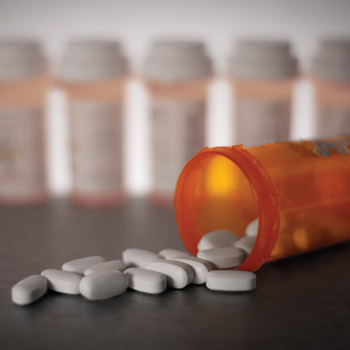Screening for substance use, anxiety gains new significance
This issue also covers the origins of medical eponyms, continuous glucose monitoring in the hospital, and a preview of ACP's virtual Internal Medicine Meeting.
The ongoing COVID-19 pandemic has challenged all aspects of our lives, from personal to professional. Given that, it's not surprising that rates of substance use in the U.S. have increased over the past year. Although a causal relationship can't be proven, the association is strong, making a recent recommendation from the U.S. Preventive Services Task Force to screen for unhealthy drug use seem particularly timely. The evidence in support of screening is indirect, but experts say the information, once gathered, can help inform care. Our story reviews the recommendation and how internists may want to implement it. (In addition, a related Q&A discusses increased use of cannabis among older U.S. adults.)
The pandemic has also, perhaps obviously, increased levels of anxiety, another focus of recent screening recommendations. Guidance from the Women's Preventive Services Initiative supports annual screening for anxiety in female patients ages 13 years and older, with cognitive behavioral therapy as first-line therapy in those with a positive result. In our story, experts discuss why such screening is important, whether it might make sense to also look for anxiety in men, and when and why to introduce medical therapy with selective serotonin reuptake inhibitors or selective serotonin and norepinephrine reuptake inhibitors.
Did you ever wonder where medical eponyms came from and how they've evolved over time? For a brief and diverting history lesson, our article discusses their origins, the reasons why they've fallen out of favor, and why some still, against the odds, endure. And, an update on new technology covers continuous glucose monitoring and how it has been adopted for hospital use during the COVID-19 pandemic.
ACP's Internal Medicine Meeting, like many other medical meetings, won't be held in person this year, but Internal Medicine Meeting 2021: Virtual Experience has a wealth of offerings for attendees. Read a preview of what's in store, including three plenary speakers, many "microsessions," and even more of the excellent educational content ACP is known for. And while we're on the topic of medical conferences, a story from the Liver Meeting Digital Experience, held last November by the American Association for the Study of Liver Diseases, looks at the significance of liver enzyme elevations in patients with COVID-19.
Are you concerned about substance use and anxiety levels in your patients? Are you planning to sign up for Internal Medicine Meeting 2021? Let us know at immatters@acponline.org.
Sincerely,
Jennifer Kearney-Strouse
Executive Editor




